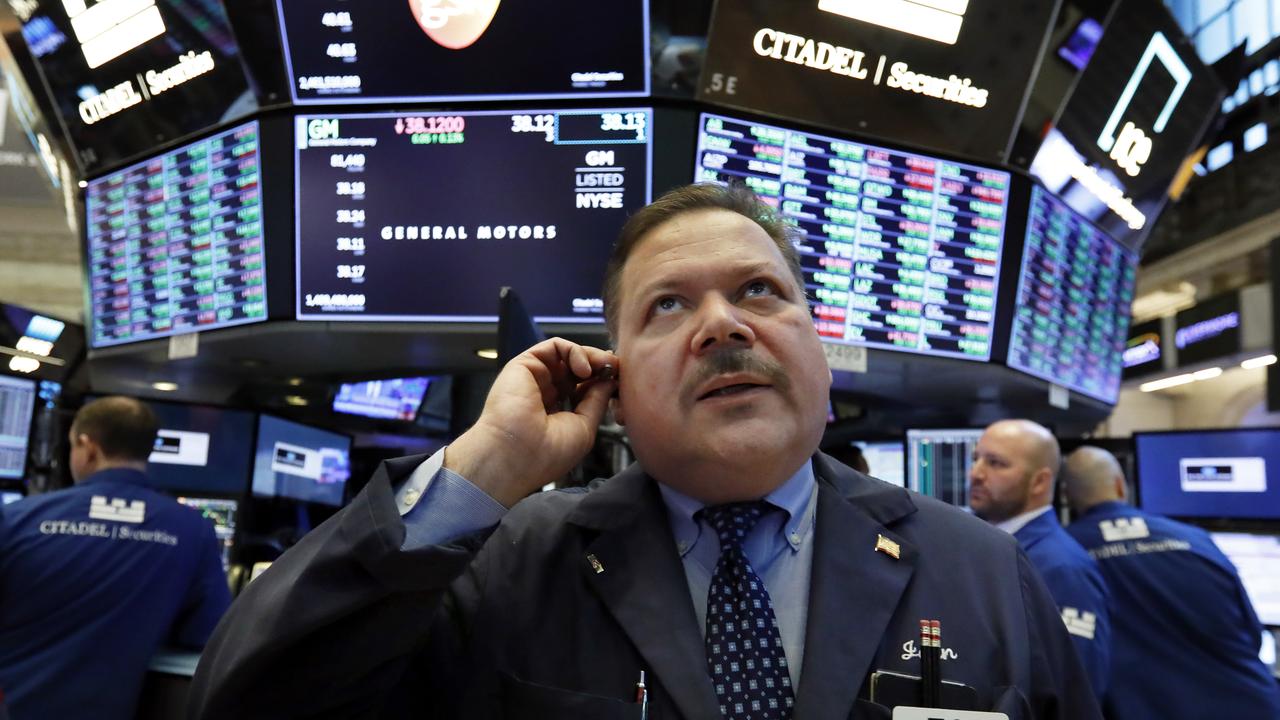Goldman Sachs puts rocket under shares, Australian dollar
Commodity prices surged with bullish implications for the dollar and shares after Goldman Sachs backed the asset class.

Australia’s benchmark S&P/ASX 200 share index jumped 1.2 per cent to 5413.3 points yesterday as resources companies led broad-based gains amid strong gains in commodity futures. The dollar bounced to US74.05c after US dollar strength had pushed it down to five-month low of US73.11c.
Dalian iron ore futures jumped 6 per cent to 580.5 yuan a tonne, West Texas Intermediate crude oil rose 1.4 per cent to $US48.91 a barrel and London Metals Exchange copper jumped 2 per cent to $US2.58 a pound after Goldman Sachs said improving manufacturing activity and the likely formal ratification of production cuts by OPEC at next week’s meeting warranted an overweight position on commodities.
Goldman Sachs is the biggest bank by commodity trading revenue.
“Historically, when the US and Chinese output gap closes and inflation begins to rise, this has been a buy signal for commodities,” said the firm’s global head of commodities research, Jeffrey Currie.
“We believe the recent reacceleration in global PMIs suggests commodity markets are entering a cyclically stronger environment. Oil, natural gas, zinc, coking coal and nickel are all poised to benefit from a cyclically stronger demand backdrop due to supply restrictions from either policy actions on oil, coking coal and nickel or economic reductions on natural gas and zinc.”
Currie expects the S&P GSCI enhanced commodity index to rise 9 per cent in the next three months and 6 per cent over the next 12 months. WTI crude is expected to average $US55 a barrel in the first half of 2017, and spot iron ore is expected to trade around $US65 a tonne in the next few months before slipping to a still respectable $US55 by the end of 2017. However, spot gold is now expected to average $US1200 over the next six months amid US interest rate increases.
Coking coal is up 300 per cent, thermal coal 100 per cent and iron ore 80 per cent this year, with most of the gains occurring in the past two months amid economic stimulus, regulatory change and speculation in China.
The surge in bulk commodity prices has been one of the biggest surprises of 2016, while the degree to which it is sustained will make a big difference for the Australian economy.
The LME index of industrial metal prices has jumped 14 per cent in the past few weeks amid signs that China’s economic growth is stabilising and hopes that US president-elect Donald Trump’s plans for fiscal stimulus will boost demand. But while it is tempting to blame the sharp post-election rally in industrial metals prices on Trump’s platform of lower taxation and higher public spending on infrastructure, the main driver has been a continuation of a “reflation trend” caused by China’s early 2016 credit stimulus that was directed at infrastructure projects, and policy-driven supply curtailments in coal where China has 50 per cent of global production.
“Although this was policy-driven and a Trump victory increases the odds of further fiscal policy stimulus, these policy actions all act as a tailwind on a US economy in the later stages of a business cycle pushing near capacity,” Currie says.
He sees stronger commodity prices being consistent with a stronger US dollar next year, despite the normal inverse correlation between the two. That’s because oil prices aren’t expected to rise enough to significantly change the financial pressures on Emerging Markets producers.
“In a world where $US50-$US55 a barrel for oil now looks to be the long-run equilibrium price, there are no excessive windfall gains to be saved by commodity producers,” Currie says.






Commodity prices surged with bullish implications for the Australian dollar and shares after Goldman Sachs recommended overweight positions in the asset class for the first time in years.